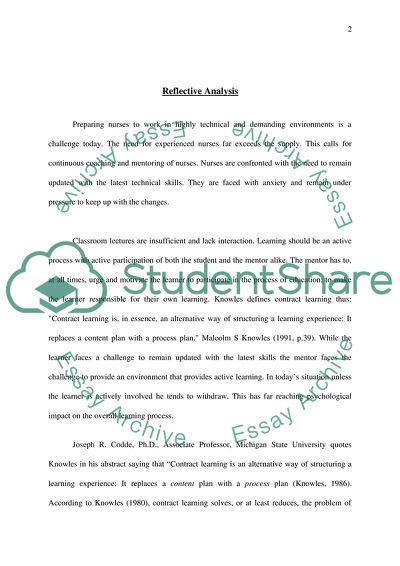Cite this document
(“Reflective Analysis Essay Example | Topics and Well Written Essays - 2500 words”, n.d.)
Retrieved from https://studentshare.org/miscellaneous/1535010-reflective-analysis
Retrieved from https://studentshare.org/miscellaneous/1535010-reflective-analysis
(Reflective Analysis Essay Example | Topics and Well Written Essays - 2500 Words)
https://studentshare.org/miscellaneous/1535010-reflective-analysis.
https://studentshare.org/miscellaneous/1535010-reflective-analysis.
“Reflective Analysis Essay Example | Topics and Well Written Essays - 2500 Words”, n.d. https://studentshare.org/miscellaneous/1535010-reflective-analysis.


